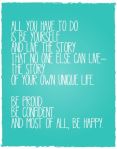 Growing up with a super toxic mother is hard enough. But what many people who manage to disengage from the toxicity struggle with, down the adult road, is the relentless desire of toxic moms to be in their grandkids lives.
Growing up with a super toxic mother is hard enough. But what many people who manage to disengage from the toxicity struggle with, down the adult road, is the relentless desire of toxic moms to be in their grandkids lives.
Of course, we want our children to know all of their relatives and to be part of a loving and nurturing extended family. But what if you know your own mother is toxic? What if you are sure she will emotionally or physically damage your child? What do you do?
On the Toxic Mom Toolkit Facebook page many posters write about severing contact all together and just enduring the never-ending pleas and threats from toxic moms hell-bent on playing granny. Many people have gone through the courts to acquire restraining orders to protect their children and peaceful family life. In some cases, it can be a terrible and extended emotional battle.
What would you do if your toxic mother decided to use the courts to gain access to your children? What can you do now to protect yourself against that possible future event? I asked my friend, The Lawyer, and here’s what she said:
“This is an issue that has long bothered me as there is an inherent bias in the system. If you are MARRIED, and choose no contact with the grandparents, then the court accepts the parental decision. If you are a SINGLE parent, then grandparents can petition for visitation and/or custodial time. BS, right?”
She went on to explain that the object of the law is to allow the child access to both sides of the family, which makes sense.
“Even if the (other parent) is a loser, doesn’t mean the child shouldn’t know the whole family. If BOTH single bio/adoptive parents agree that grandparents should NOT have access, the court will listen. If they disagree is when it gets tricky…”
My friend says, even if you are single and not a mother today, it’s never to early to start documenting what your toxic mother does when she thinks nobody can see or hear her.
“As with any court action, documentation is almost EVERYTHING. The other thing that is crucial is PRESENTATION. If a client goes in insisting that their MIL is a crazy *itch who has a crazy kid and the client her(him) self is perfect, then the court will likely ignore the client. Alternatively, if the client goes in with documentation, acts calmly and reasonable, and laments that they wish their children could have two grandmas, realizes what the children miss out on, but can document ways in which that particular grandma is toxic, then the court is likely to listen and follow the client’s wishes.”
The grandparent rights movement is gaining strength and is popping up in several countries. Think about the energy your toxic mom has and think what she’d do with it if there was an actual court process that might help her WIN access to your child. That’s why today is a good day to start documenting her behavior.
Toxic Mom Toolkit: The Top Five Things You Should Track
1. Keep a small notebook in your purse or car and document each unwanted contact from your TM. Keep records like a scientist. A typical notation could be: Sun. May 5, 4: 15 p.m. telephone call. Insists we come for dinner. Declined. Swearing. Threatens to call CPS.
2. If your mother is ranting on the phone have your spouse, or friend, or someone you trust listen in on speaker mode. They can testify for you in court later. Record her rants if you can and save them.
3. If your mother comes to your home uninvited, ask her to leave. Document the visit in your notebook. If she won’t leave, call the cops. That will generate a police report, which you could present in court at a later date.
4. Maintain an electronic folder for your mother and keep all of her emails, IM’s, texts in one place.
5. If your mother goes to court to gain access to your children, hire a lawyer. Also immediately request a Domestic Violence worker to help you navigate the court process. Once your toxic mother starts using the courts, you will need to prepare a strong defense and hire people to push back.
Of course, you need to conduct yourself in a kind and calm manner. No matter what she says or does you cannot respond in kind. Don’t call back, don’t yell back, don’t talk back.
My final thought on this topic is that if you have a toxic mother or mother-in-law it is crucial for you and your spouse or former spouse to be on the same page on this topic. If you’ve struggled with maintaining a cordial relationship with your ex, consider building a bridge on the basis of protecting your child/children from a toxic grandparent. It could be the one thing you still agree on and it could be a beginning point for a happier co-parenting arrangement.





















